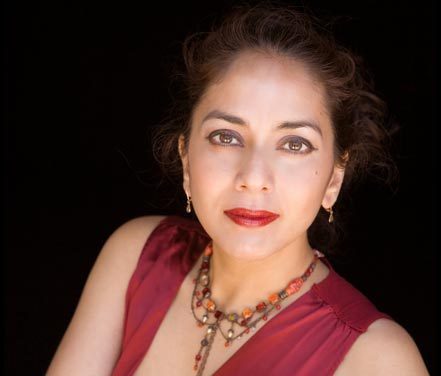
By: LekshmiSajeev
Beloved by Toni Morrison: While working on my doctorate in comparative literature, I became fascinated by the literary figure of the infanticidal mother. In Beloved, an American runaway slave kills her infant rather than condemn her to slavery. So, Greece’s Medea, Mexico’s La Llorona, and India’s Putana, who fed Lord Krishna poisoned milk, and whom I write about in my forthcoming trilogy, are ambivalent figures in our cultural imaginations.
The House of Spirits by Isabelle Allende: This story, with its supernatural elements, magical realism and collision between the powerful and powerless classes of society influenced the writing of my own first novel. Allende’s story spans four generations of a family amid the political and social upheavals of Chile. I was especially captured by the character of the family’s youngest daughter, and her gift of seeing the future, but her inability to change it.
In An Antique Land by Amitav Ghosh: I devoured every single book by this author while in graduate school. His non-fiction and anthropological narrative reconstruct the history of a 12th-century Indian slave, Bomma, and his Jewish master, Abraham Ben Yiju, across western India and the Mediterranean. Meticulously researched and beautifully executed, this book showed me the importance of discovering, reconstructing, and re-imagining stories that are lost to history, especially those of the dispossessed.
The Mahabharata: I grew up surrounded by stacks of books that my parents collected from around the world, literally thousands, but it was The Mahabharata that my dad read devotedly every day. The myths in this ancient epic symbolise the battle between light and dark forces of civilisation, and also in each of us. These archetypal characters reside in our collective imagination as south Asians, and so do their struggles.
My Story by Kamala Das: This book showed me the power of a woman with a voice. Written in 1970, this author and poet was one of the first Indian women to boldly tell her story in writing, which shocked her community in Kerala with its fearless discussion of Das’ sexuality and her awakening into womanhood while revealing hypocrisies within her community. Almost 50 years later, this book continues to be a best-selling woman’s autobiography.
Nicholas and Alexandra by Robert K Massie: A favourite book as a teenager, this sweeping account of imperialist Russia and the doomed story of the Romanovs is not just about passion and power, but about how the corrupt mystic Rasputin inserted himself into the royal family. They blindly follow him, believing him to be the only one to save their haemophilic son, even as they doom themselves to unforgettable tragedy.
The Orphan Master’s Son by Adam Johnson: One of the best books I’ve read in the last five years, this novel is set in the insular and unknown world of North Korea. It is a brilliant feat of research, imagination and the unwinding of the powerful narratives of state propaganda. At its core, it is a story about humanity rising up in the bleakest and repressive of circumstances.
The Peacock Throne – The Drama of Mogul India by Waldemar Hansen: I’ve read this 500-page tome cover-to-cover three times. It is an incredible account of India’s Mughal dynasty, from Babur to Akbar, Jahangir, Shah Jahan, and finally to Aurangzeb, taking us into the intrigue, scandal, and tragedy of unchecked power and passion. War, incest, fratricide, imprisonment, destruction, addictions, rivalries and, of course, a legendary love that creates the magnificent Taj Mahal are threaded throughout this masterpiece.
The Poisonwood Bible by Barbara Kingsolver: This book opened my eyes while studying the impact of colonialism in societies. It’s about a white southern American missionary family in the Belgian Congo. The authoritarian, evangelical father is set on converting ‘savages,’ the wife struggles between duty to her husband and her own conscience, and their daughters either hate or love Africa; their views tearing the family apart and ultimately offering redemption for those who truly seek it.
Woman At Point Zero by Nawal El Saadawi: This novel changed my life as an undergraduate at Duke University while taking a seminar with the author, based on Saadawi’s interviews with a female inmate in Qanatir Prison in Egypt, who tells her life story before her execution. It is a fierce account of subjection and empowerment, and how a woman survives in a society that strips her of her freedoms, dignity and sense of self.
Shilpa Agarwal is the author of Haunting Bombay, TV writer and host of Life Force talk show on Rukus Avenue Radio. Twitter & Instagram: @authorshilpa & www.rukusavenueradio.com
